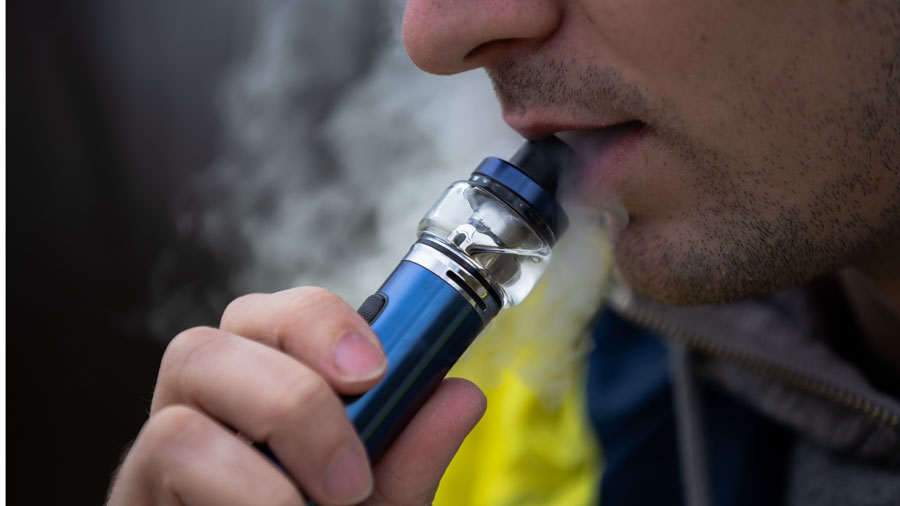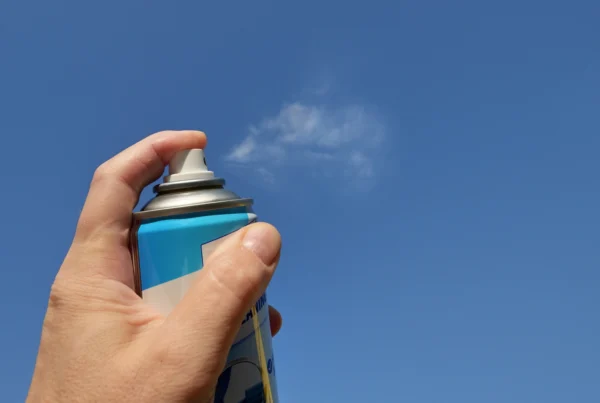
Table of Contents
Key Points
- The vaping age has recently been raised to 21.
- Many young people prefer vaping to smoking.
- Few people realize that vaping can carry as many health risks as smoking.
- Nicotine vapes can be very addictive.
What is the Legal Age to Vape?
The legal age to purchase and use a vape was once 18 but has since been raised to 21 as of 2019. However, the details may vary depending on the state you’re in.
The Laws Behind the Legal Vaping Age
How old must you be to vape without getting into legal trouble? The use of vapes by minors has been a problem ever since vapes were invented. Most countries set the legal vaping age at 18, and for a long time, the United States followed this requirement. But in recent years, the government has raised the legal age.
Before 2019, many people were concerned about young people vaping. Many states had the problem of high school students vaping regularly. Families were becoming concerned about their children’s health and how vaping would affect them at such an early age. Many teenagers also became experts at hiding and discreetly using their vapes. Many vape devices are small enough to hide in a pocket, and some are made to look like other objects, like pens or key fobs.
It is even easier to hide their use because vape devices don’t create any strong-smelling byproducts, like smoke. It was only in 2019 that the US government changed the laws regarding vape usage. The federal Tobacco 21 law came into effect by the end of the year. This law prevented vape retailers from selling tobacco products and accessories to anyone under 21.
This law only applies to vape retailers—a person who buys a vape under age 21 will not be held responsible. There is also no penalty if someone younger than 21 uses or possesses a vape or accessory. All states needed to obey this law, regardless of the state’s tobacco laws.
However, there are a few exceptions to this rule. In Florida and Georgia, it is indeed illegal for a person under 21 to use a vape product. There are also many rules and regulations concerning the vaping of non-tobacco products, such as CBD. Some states require you to be 18 to buy a CBD vape, while others need you to be at least 21.
How Do Vapes Work?
Vapes are small and compact. In their core, they contain a heating coil and a vape cartridge. This cartridge is filled with fluid, commonly called vape juice, which becomes a vapor when heated. The heating coil, which is right next to the cartridge, is responsible for this. The heating coil only activates when you suck on the vape’s mouthpiece.
The suction will stimulate the heating coil, then quickly heat the vape juice until it produces vapor that the person can inhale. Sometimes, if the person sucks too fast, they will get vape juice in their mouth instead of vapor because the heating coil didn’t have enough time to heat the juice. Most vapes use batteries; once they run out, you either throw the vape away or recharge it.
Like cigarettes, once a person inhales the vapor, they will experience the effects of nicotine almost instantly. It only takes a few seconds for the nicotine in the vapor to diffuse from the lungs to the blood. Some vapes are disposable and are thrown away after their batteries run out.
What Are the Dangers of Vaping?
The legal age for vaping was raised to 21 because many people were concerned about their children and other young people using vapes. Many people think vapes are perfectly safe, especially compared to traditional tobacco cigarettes. However, studies have shown that nicotine vapes have many more health consequences than people realize.
The brain is only fully developed at age 25, and many scientists believe that excessive nicotine consumption in young people may stunt or alter the brain’s ability to develop.[1] Vapes indeed lack many negative aspects of cigarettes, such as tobacco tar. However, they still contain many chemicals that can damage the brain, lungs, and other body parts.
Vape juice doesn’t only contain nicotine. It often contains various filler ingredients and artificial flavors. Many have VOCs, also known as volatile organic compounds.[2] These compounds may cause throat and lung irritation, nausea, nervous system damage, and liver and kidney problems when consumed in large quantities.
Certain artificial flavors can also be very dangerous. Some flavors are relatively harmless, while others are loaded with unhealthy chemicals. Formaldehyde is a substance that is known to cause cancer. Diacetyl is a chemical found in various flavorings that may be linked to severe lung problems, such as bronchiolitis obliterans. It is also possible to accidentally consume formaldehyde as a byproduct if the vape isn’t working correctly.
What Are the Long-Term Side Effects of Vaping?
Many people think vapes are less harmful to the lungs because they produce vapor instead of smoke. However, various studies have shown that vapes can be just as harmful to the lungs as cigarettes. Acute lung injury may be associated with the use of e-cigarettes.[3]
Vapes still contain nicotine, which can harm the body in various ways. It is an infamous vasoconstrictor. This makes it difficult for blood to flow throughout the body because the blood vessels are tighter than usual. This can cause heart problems as well as issues with sexual dysfunction. Chronic vasoconstriction may make it more likely for a person to develop cardiovascular diseases.
The vascular diseases that people who vape may develop are almost identical to those of smokers. This can make people more likely to have heart attacks and strokes. Lung conditions, such as pneumonia or popcorn lung, are also potential consequences of vaping. The excessive inflammation of the respiratory system caused by vaping may weaken the immune system as well.
Vaping Age Restrictions Are Designed to Keep Minors Safe
While vaping is a popular alternative to smoking, it can still be dangerous and addictive. It is best to avoid it or get treatment if you don’t know how to quit. You have to be 21 years old or older to vape in the United States.
Frequently Asked Questions
Below are some of the most frequently asked questions about vaping.
OCEAN RECOVERY EDITORIAL GUIDELINES
The internet contains a vast amount of misinformation, but when it comes to your health only peer reviewed, research centered data matters. At Ocean Recovery, all content published throughout our website has been rigorously medically reviewed by a doctorate level clinician, and cross checked for medical accuracy. Our editorial process helps our readers trust that the information they are consuming is factual and based upon scientific data. Your health is our top priority, find out more about how we safeguard the integrity of information on our website. Read More About Our Process





